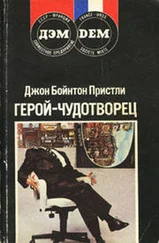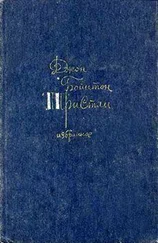"Something in that, p"r"aps," the other admitted, after a stare.
Margaret Waverton was talking to her husband. Her rather clipped and very clear voice found its way across the table. "But you'll never get Muriel Ainsley to see that, Philip. It's really astonishing how people, people with brains too, can know so little about themselves. The more I see of life, the more I'm convinced that onlookers really do see most of the game."
"So they do." Philip's voice, dropping into a meditative bass, could be heard distinctly. "Only life isn't a game, you know, and you never really feel it is except where you yourself are not concerned. That's where the smart saying breaks down; nearly all smart sayings do break down badly. Anyhow, we ought to stop talking about life, because what we say doesn't mean anything. What's the use of saying it's like this or means that, when obviously it includes both this and that and their opposites."
"Don't be sententious, Philip," she told him. "You've said that before, too. Besides, I was talking about Muriel Ainsley."
But they were all sententious, Penderel reflected, himself included. They were settling down very cosily. They would all start boasting soon, and if he wasn't careful, he would be the first, though as usual he would do it topsy-turvily. It was odd how what you might call the Femmishness of the place had suddenly vanished – no, not vanished but retreated. He thought of the girl at his side. Certainly it didn't stand much of a chance with her, this Femmishness. But perhaps it hadn't fairly begun yet. He had a feeling that there was more to come. There was a whole night before them and it was early yet. Why, the little band wouldn't have arrived yet at the "Rats and Mice."
They had finished eating now and had somehow drifted into silence. Throughout supper, all six of them (Miss Femm had never spoken a word) had chatted easily, though there had been no general burst of talk; but now they were quiet. They might have been waiting for a signal, they were so curiously still. Then suddenly they were given one, for Miss Femm, who had begun to seem a mere object, turned herself into a real person again by rising from her chair and waddling away. She said nothing, gave no meaning glances, did not hesitate, but simply arose and departed. From her manner, they might have been as unreal to her as she had been to them. They stared after her in silence. If they were waiting for a signal, it was not this.
There came a second one, this time out of the encompassing night, which they had almost forgotten. It might have been thunder rolling among the hills, the bursting of a bank above, or another landslide; the noise was distant and indeterminate, and yet it was full of menace. Sharply, dramatically, it pointed to their situation, like a pin stuck into a map. The roof and walls were no longer another sky and horizon but were roof and walls and nothing more. A little box held them all, tiny creatures crouching in a dot of light. Thus dwarfed and huddled together in body, their spirits first shrank to a point and then expanded in concert. They awoke to share a common mood. The change in them was as decisive as Miss Femm's exit, but it had to struggle through to the surface, into speech, and so it seemed gradual, as if curtain after curtain of gauze were being raised between them.
Philip made the first remark, and all he said was: "If nobody objects, I think I'll have a pipe." That was nothing, yet by addressing the whole company as he did, he made it easier for the others to speak to the whole table. He brought out his pipe, Sir William found a cigar, and Penderel and the two women lit cigarettes. Mr. Femm contented himself with gin-and-water.
"You know," said Penderel, "we ought to play a game."
"Good idea," cried Sir William, very hearty and masterful behind his cigar. "Can't sleep yet. What about bridge?"
Margaret jumped at this. "I'd love a game." She thought how comforting the familiar faces of the kings and queens would be. No wonder old people, surrounded by strange faces and passing Death every night on the stairs, became so passionately fond of cards.
"But I've no cards," Sir William went on. He turned to Mr. Femm. "Expect you've got a pack of cards you could lend us, eh?"
"I have none myself," Mr. Femm began, "but I have seen a pack here – - " He stopped short, something came and went in his eyes, then he shook his head hastily. "No, there are none here. I am sorry." It was very queer. Penderel, remembering, looked at him curiously and began to wonder again. Sir William appealed to the Wavertons, but they had none.
"We'll play Truth," said Penderel. "It's just the moment for it."
"So they have turned it into a game now, have they?" cried Mr. Femm, in his thin, bitter voice. "It was high time they did."
Sir William looked puzzled. "Don't seem to know it, and don't like the sound of it. How d"you play it? Hope it isn't one of those games that make you use paper and pencil, like so many kids at school. If it is, you can count me out. I hate "em."
"So do I," cried Gladys. "Is it one of them?"
"It's the simplest game in the world," Penderel explained. "Indeed you can hardly call it a game. We just go on talking but we stop lying. We simply ask one another questions, and these questions must be answered truthfully. You have to be on your honour to answer as truthfully as you can."
"My God!" Gladys couldn't help it, but she stopped short and then said "Sorry!"
"This doesn't seem to be your game, Gladys," Sir William told her. "You'd better keep out."
She shook her head very decisively. "Not me. I'm on. It'll be a nice change for some of us, you particularly, Bill. But somebody wants to be easy with the questions, or God knows what we shall hear." She darted a glance across the table at Margaret to see how she was taking it. Not too well apparently. Serve her right.
"You two are in?" Penderel looked at the Wavertons and they nodded. "We're all in, then. Now, don't forget, you're bound to answer as truthfully as you can. Get down to the stony facts."
"When you think of it," Philip growled, looking down into his pipe, "the very existence of this pastime, with its one rule about answering truthfully, is an awful comment on society."
Mr. Femm stared at him. "But what do you expect?"
"Couldn't say what we think all the time or there"d" – and Sir William waved his cigar – "there'd be the devil to pay! Not sure how it'll work even here. Still, I'm with you, and I promise to tell the truth. Won't hurt me for once. D"you all promise?" They all promised.
"How shall we begin, then?" asked Margaret. It was queer, but she was quite eager to begin. She had played it before and had hated it – a thoroughly mischievous little game, she had thought. But now, perhaps because she was in such an odd jumble of a company, perhaps because she was simply taking shelter here, she was more than willing to ask and answer and listen.
"We'll do it this way," Penderel suggested. He pointed to Waverton. "I'll ask you a question, then you'll ask Mrs. Waverton, and so on round the table. That's a pleasant neighbourly way of doing it. But everyone must speak up so that we can all hear."
Nobody objected to the arrangement. "Ask away, then," said Philip. "But don't be too hard on me. Remember I'm a shy man and I'm the first in the confessional."
"All right. Nothing too searching to begin with." Penderel reflected for a moment. "How's this, then? There are, you'll agree, innumerable snags in life – - "
"Oh, you mustn't talk to him about life," Margaret broke in. "He's just told me not to."
"You be quiet, Margaret," Philip growled, but felt himself warming towards her. That little characteristic thrust suddenly and cosily domesticated them. "Yes," he told Penderel, "I admit the snags."
Читать дальше










